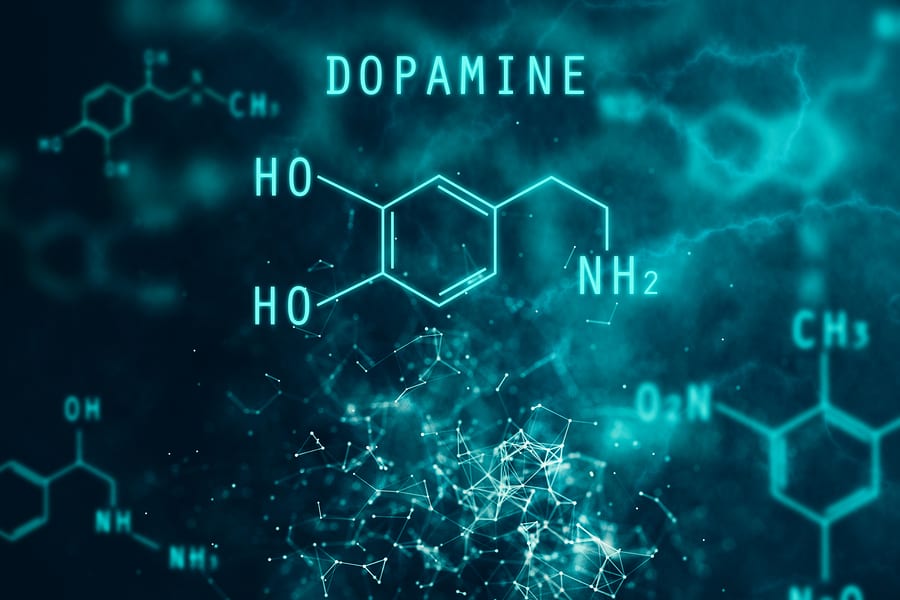When someone develops an alcohol addiction, it is more than their own lack of self control that drives them to continue to drink in spite of negative consequences. There are chemical changes in the brain that occur when we drink alcohol and these can cause addiction to develop and perpetuate itself. Dopamine release is one of the key factors in alcohol addiction that can make it very difficult for people to quit drinking.
Understanding How Alcohol Affects Your Brain’s Dopamine Levels
When you consume alcohol, it can significantly impact your brain’s dopamine levels through several key processes:
- Relaxation and Stress Relief: Alcohol can make you feel more relaxed by suppressing GABA (a calming neurotransmitter) and reducing glutamate (which is linked to excitatory signals). This dual effect helps you unwind and lowers stress levels, which in turn leads to an increase in dopamine release.
- The Pleasure Pathway: Alcohol activates the mesolimbic pathway, often referred to as the brain’s “reward pathway.” This activation causes a surge in dopamine, amplifying the pleasurable feelings associated with drinking.
- Long-Term Changes: With regular alcohol use, your brain adapts by reducing its natural dopamine production and decreasing the sensitivity of dopamine receptors. As a result, you may need to drink more alcohol to experience the same level of pleasure, which can lead to dependency and addiction.
Understanding these mechanisms can help you make more informed choices about your alcohol consumption and its impact on your well-being.
The Role of Dopamine in Alcohol Addiction
Research has shown that alcoholics tend to have fewer dopamine receptors in their brain meaning that their brain responds less to dopamine than the average person. They also have fewer dopamine transporter sites meaning that it can be harder to retrieve dopamine for later use. Essentially, heavy alcohol use over time begins to affect the brain’s ability to use dopamine and makes it more difficult for the individual to feel pleasure.
Because of their brain’s trouble with responding to dopamine, alcoholics will tend to drink more and more alcohol to try to get the same rush of dopamine that someone else might experience with a much smaller dose. An alcoholic’s natural state may also tend to be more depressed because of their brain chemistry and they will need to drink in order to feel any sense of happiness or pleasure. These issues can make it very difficult for someone with an alcohol addiction to moderate or change their drinking habits without medical help.
Restoring Dopamine Levels After Quitting Alcohol: What You Can Do
Quitting alcohol is a significant step towards reclaiming your health and well-being. While it may take time for your dopamine levels to return to normal, there are several proactive steps you can take to support this recovery process:
- Nourish Your Body with a Healthy Diet: Eating a balanced diet rich in nutrients can naturally boost your dopamine levels. Foods high in protein, such as lean meats, fish, and legumes, as well as fruits and vegetables, can help support healthy brain function.
- Stay Active with Regular Exercise: Physical activity is a powerful way to increase dopamine production. Whether it’s a brisk walk, a yoga session, or a workout at the gym, regular exercise can help improve your mood and overall well-being.
- Seek Support Through Therapy and Groups: Engaging in behavioral therapies like Cognitive Behavioral Therapy (CBT) can help you manage cravings and develop healthier coping mechanisms. Support groups, such as Alcoholics Anonymous (AA), provide a community of understanding and encouragement, making the recovery journey easier.
- Consider Professional Treatment: Programs like those offered at Seasons Malibu provide comprehensive care, including medical detoxification and holistic therapies. These programs are designed to help you safely recover and restore your brain function, ensuring you have the support you need to succeed.
Remember, your brain has an incredible capacity to heal. With the right care and support, you can restore your dopamine levels and enjoy a healthier, more fulfilling life.
With recovery treatment, it is possible for an alcoholic to repair some of their brain chemistry over time so that they will be able to improve their brain’s ability to respond to and retrieve dopamine. Abstinence from alcohol, healthy living habits and psychotherapy can help a person heal and start to feel natural pleasure and happiness again.
Seeking Help for Alcohol Addiction
By understanding relationship between alcohol addiction and dopamine release helps to get professional help when addicted with alcohol. At Seasons in Malibu alcohol treatment center we offer tailored treatment programs designed to address neurological and psychological aspects of addiction. Our luxury rehab center provides personalized treatment plans, various therapies, science-backed treatment programs and holistic wellness programs to support long-term recovery.
If you or a loved one is struggling with alcohol addiction, don’t wait to seek help. Contact Seasons Malibu today and take the first step toward healing and a healthier future.

